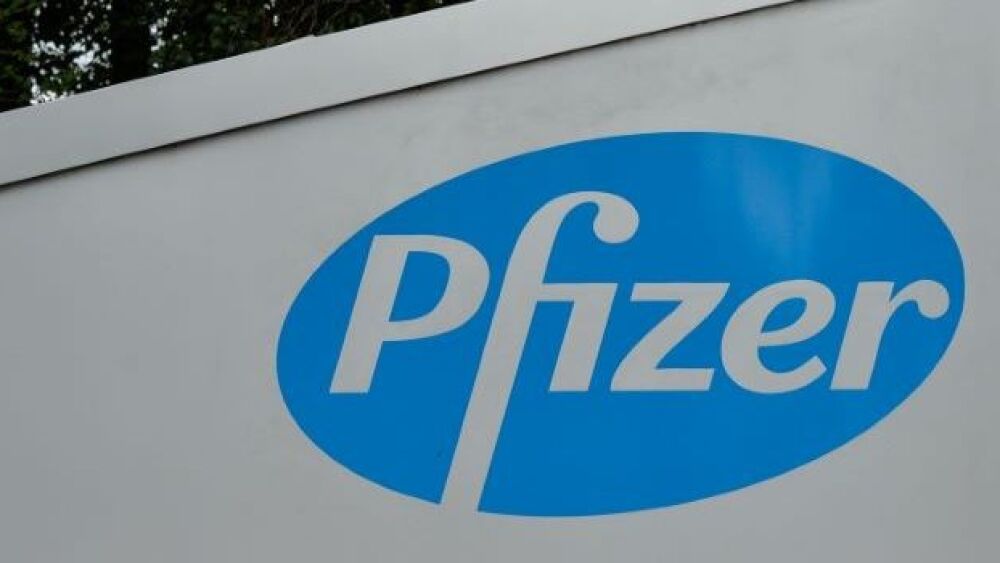The company indicated it was pausing distribution out of an abundance of caution and would continue investigations.
Artur Widak/NurPhoto via Getty Images
Pfizer announced it is pausing the distribution of Chantix (varenicline), its drug to help people stop smoking, after identifying increased levels of nitrosamines in the pills. Nitrosamines are potentially cancer-causing agents. The company is also recalling several lots of the drug.
In 2020, the U.S. Food and Drug Administration (FDA) found high levels of NDMA (N-nitrosadimethylamine) in some formulations of the diabetes drug metformin and had also reached out to Pfizer and other companies over NDMA in unacceptably high levels in a variety of drugs. In 2019, Sanofi’s heartburn medication Zantac was recalled over NDMA contamination.
The FDA approved Chantix in May 2006 for adults 18 and over to help them quit smoking. It is used for 12 to 24 weeks. Chantix sales fell 17% from $1.1 billion in 2019 to $919 million in 2020 during the COVID-19 pandemic as well as Pfizer losing patent protection in the U.S. in November.
In the company’s May quarterly report, the company said, “generic competition for Chantix has not yet begun, it could commence at any time.”
The company indicated it was pausing distribution out of an abundance of caution and would continue investigations.
“The benefits of Chantix outweigh the very low potential risks, if any, posed by nitrosamine exposure from varenicline on top of other common sources over a lifetime,” Pfizer spokesperson Steven Danehy told Reuters.
Nitrosamines are also found in water and grilled meat. The levels in drugs aren’t supposed to exceed a theoretical excess cancer risk of 1 in 100,000.
At this time, the company hasn’t said which nitrosamines were found in Chantix or how they got into the pills. NDEA is another nitrosamine that is sometimes found in drugs. Zantac and its various generic formulations were pulled from the market in April 2020 because they might form NDMA over time in high temperatures. In that case, NDMA was identified in the blood pressure drugs after a solvent used in its manufacturing created a side reaction that generated the carcinogen.
Otherwise, Pfizer announced this week that it had dosed the first patient in its TALAPRO-3 Phase III trial of enzalutamide in metastatic castration-sensitive prostate cancer (MCSPC). Talazoparib is an oral poly (ADP-ribose) polymerase (PARP) inhibitor. It is being studied in combination with enzalutamide, an androgen receptor inhibitor, compared with placebo plus enzalutamide in men with DNA damage response (DDR)-deficient mCSPC. The first patient was administered at a location in Glendale, California.
The trial will enroll about 550 men with DDR-deficient mCSPC across 285 clinical sites in 28 countries. The primary endpoint is radiographic progression-free survival (rPFS), and overall survival (OS) is a secondary endpoint. It is expected to wrap in late-2024.
“The prognosis for men with advanced prostate cancer has significantly improved since the introduction of novel hormone therapies, but additional therapeutic options are needed for the approximately 25% of men with tumors harboring DNA damage response (DDR) gene mutations, who may have poorer outcomes,” said Chris Boshoff, chief development officer, Oncology, Pfizer Global Product Development.
“By combining enzalutamide, which has a proven clinical benefit in men with metastatic castration-sensitive prostate cancer, with talazoparib, our PARP inhibitor that is active in DDR-mutated cancer, we may be able to offer a new treatment option that targets the underlying genetic mechanisms associated with DDR-mutated mCSPC.”





